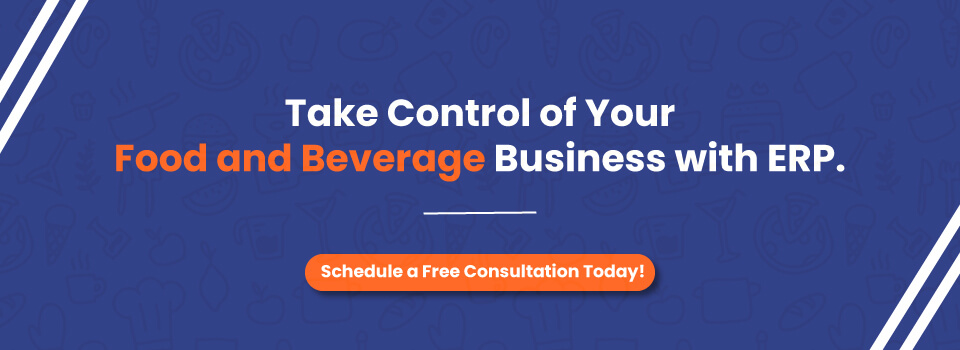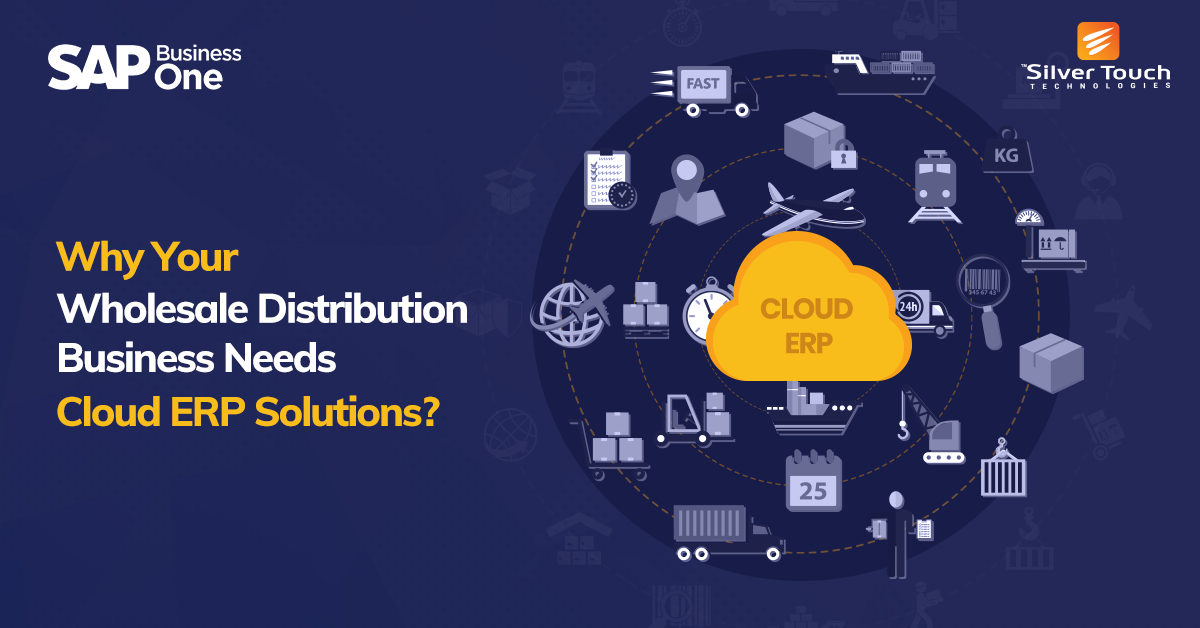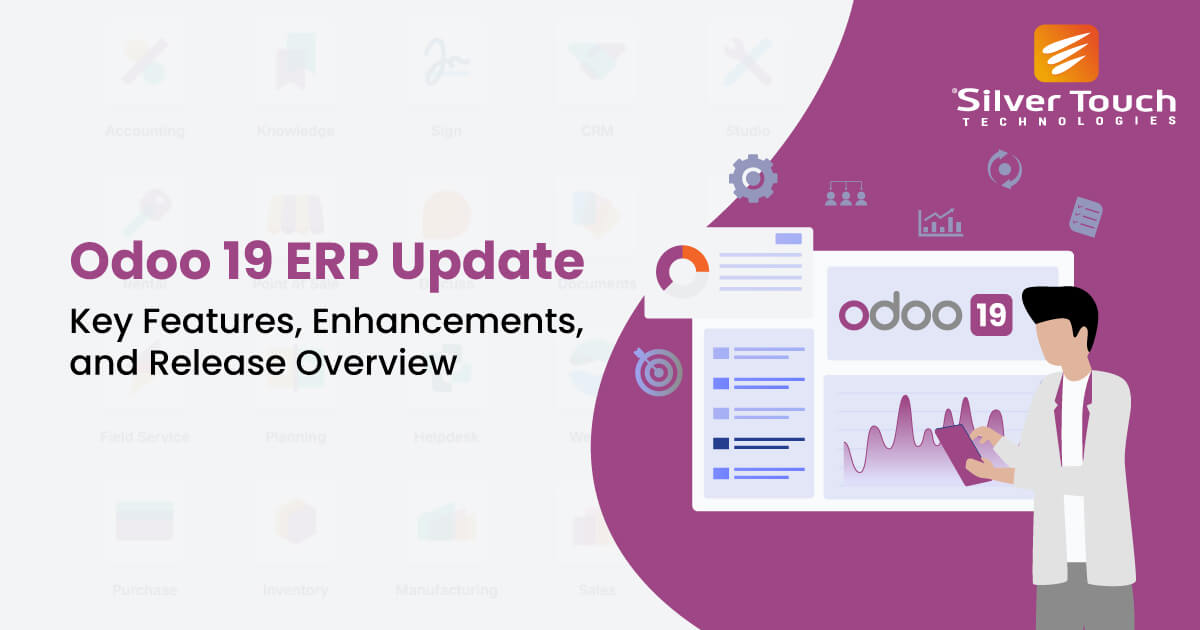ERP for Food and Beverages- Complete Guide for Food Manufacturers
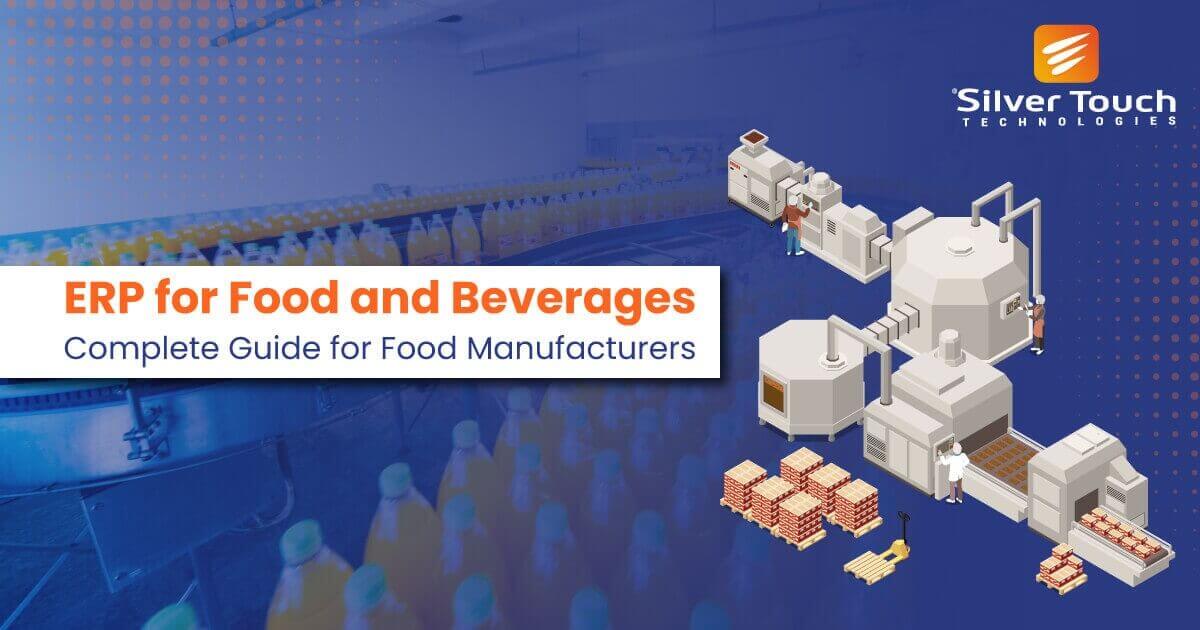
The food and beverage industry is one of the fastest-growing and most lucrative sectors globally. However, entrepreneurs of food manufacturers have to deal with cut-throat competition and regulatory pressure along with other challenges. Here, a robust food and beverage ERP solution comes to their rescue. It can assist the F&B industry in meeting all the challenges while maintaining the taste and quality of various delicacies.
An ERP for food and beverage industry also helps the sector to gain the advantage of digitization in enhancing customer services. As per the global report, the market size of the food and beverage industry has increased from $6729.54 billion in 2022 to $7221.73 billion in 2023. Moreover, this sector covers around 5% of the GDP and 10% of employment in the USA alone. As per the government report, the F&B industry employs 1.5 million people.
It is fair to mention that the food and beverage ERP software can assist you in making the most of this thriving market. Let’s discuss the challenges of the food and beverage industry along with the role and benefits of the ERP in this blog.
ERP- Introduction and Types
ERP or Enterprise Resource Planning is a comprehensive system consisting of different tools and technologies for managing core business processes. A robust ERP software can manage business processes including project management, supply chain operations, procurement, accounting, enterprise performance management, and compliance. It also brings automation in day-to-day business operations to save time and effort.
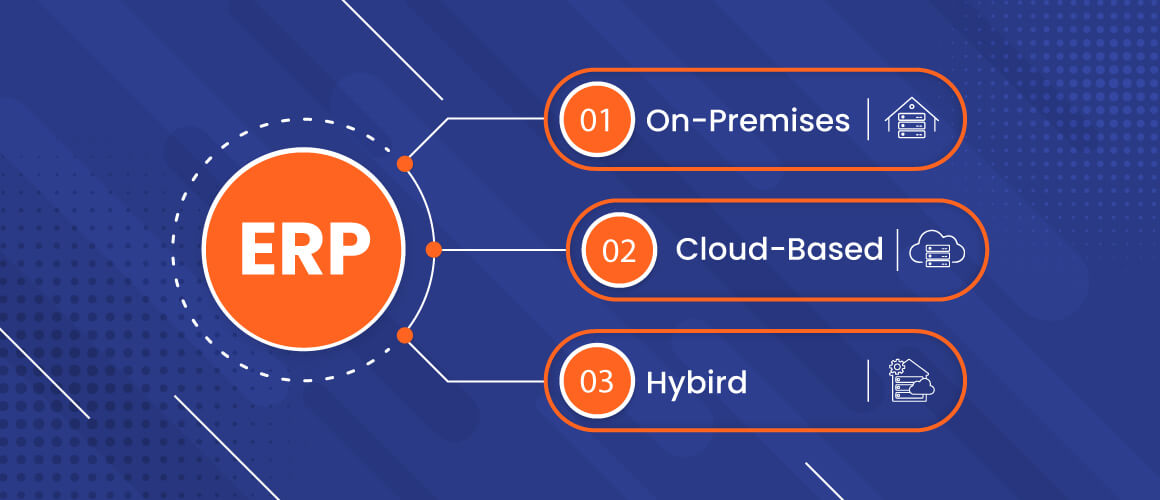
We can classify an ERP solution into 3 broad categories-
- Cloud-based- It is a centralized platform powered by cloud technology.
- On-premises- Companies can integrate it into the existing business system.
- Hybrid- The cloud technology manages it and acts like a plug-and-play version.
It is better to opt for a cloud-based or hybrid ERP as it remains cost-effective and the ERP solution provider maintains it.
Let’s go through some challenges in the food and beverage industry and understand the role of ERP in solving them.
Challenges of the Food and Beverage Industry
The food and beverage industry is dynamic but highly complex. It poses many challenges for food suppliers, restaurant owners, food manufacturers, and employees. A multitude of challenges ranging from data management and traceability concerns to food safety and quality control issues.
Here we mention some most prevalent challenges of this industry-
1. Managing Data
Proper coordination and seamless data access across multiple departments is crucial for the growth of the food and beverages business. However, the sheer volume of diverse data makes it cumbersome to manage and share. Inefficient data management leads to non-compliance with regulations, and hampered brand reputation.
2. Traceability Issues
Consumers demand transparency and want to know the origin, processing methods, ingredients, and other aspects. This is one of the biggest challenges for the F&B sector. Higher transparency and comprehensive traceability across the entire supply chain is a significant challenge. Many food manufacturers find it difficult and put the value of their brand at stake.
3. Safety & Compliance-related Issues
The food and beverage industry is one of the highly regulated sectors. It faces a complex web of ever-changing regulations and compliance requirements, making it difficult to stay up-to-date. Ensuring food safety and maintaining its quality throughout the process with diverse ingredients poses a constant threat. It may lead to product recalls and damage to public health.
4. Quality Control
Quality control is paramount in the food and beverages manufacturing sector. However, manufacturers have to keep the customer’s expectations, brand value, market trends, and pricing factors in mind. Managing numerous ingredients, processes, and departments involved in food production makes quality control a complex and error-prone task.
5. Inventory-related Issues
Another major challenge for the F&B industry is to coordinate inventory across multiple departments, locations, and suppliers. Along with this, the sector has to meet fluctuating consumer demands and regulatory standards when purchasing raw materials. Here, inefficient inventory management can lead to cash flow problems, inaccurate forecasting, and missed opportunities.
A feature-rich and advanced food and beverage ERP solution can assist you in handling these challenges, and you can streamline your food business.
How ERP Helps the F&B Industry
An ERP for the food and beverage industry aims at transforming the core business processes and streamlining the workflow. Here are the major ways ERP can help food and beverage companies.
Unifying Information
ERP systems act as a single source of data and consolidate information from all teams and facilities. This holistic view enables food manufacturers to identify the root causes of issues and implement effective improvements, ultimately enhancing efficiency and operational control.
Simplifying Traceability
An ERP software can facilitate end-to-end traceability, capturing data at every critical point, from sourcing materials to final delivery. It enables you to collaborate with suppliers, distributors, and vendors with higher transparency. As a result, you can meet the consumer’s demands and expectations effectively.
Ensuring Food Safety
Food and beverage ERP systems can ensure compliance with relevant regulations and facilitate efficient recall management. It can reduce the risk of product recalls and protect your brand reputation. You can ensure good public health and gain the consumer’s trust.
Streamlining QA Process
Tailored ERP systems for the F&B sector offer automated quality assurance functionalities, including smart scales, sensor checks, and intelligent image analysis. Moreover, real-time monitoring ensures consistency and adherence to quality standards, both internal and regulatory.
Automating Critical Tasks
Human errors can have serious consequences in the food and beverage industry. ERP systems automate critical procedures, thereby minimizing the risk of errors. Also, you can schedule various tasks like sanitation, plant maintenance, and safety inspections using the ERP system.
Optimizing Inventory Management
An ERP solution can track and update raw material levels in real time. You can easily manage inventory and keep your food manufacturing business away from situations like overstock or shortages. Also, powerful forecasting tools can predict future demands and facilitate proactive planning.
It is fair to mention that the implementation of food and beverage ERP software can bring transformation in your business and you can address challenges more efficiently. It has several features to assist you to thrive in the ever-evolving food and beverage sector.
Most Common Features of Food and Beverage ERP
Various ERP solutions may differ in features but here we give the most common features that every food and beverage ERP solution possesses. It is necessary to know these features to choose the right ERP solution.
Here are the most common features of ERP solutions for the food and beverage industry-
1. Inventory Management
It maintains and monitors inventory, streamline inventory control, and optimize stock levels. It is useful for minimizing waste and prevent the stockout situation.
2. Recipe and Formula Management
This essential feature is capable of managing recipes and formulas for accurate ingredient quantities. It can standardize recipes and ensure consistency across product batches.
3. Reporting and Analytics
It can automate key performance indicator (KPI) measurement and evaluation. It also generates insightful reports with real-time data for the F&B industry to make informed decisions.
4. Lot and Batch Tracking
It can track products and batches accurately across production and supply chain. It also ensures product quality and safety through comprehensive batch-wise tracking.
All these essential features work in sync to empower food and beverage companies to achieve operational excellence.
Top Business Benefits of ERP for Food and Beverage Industry
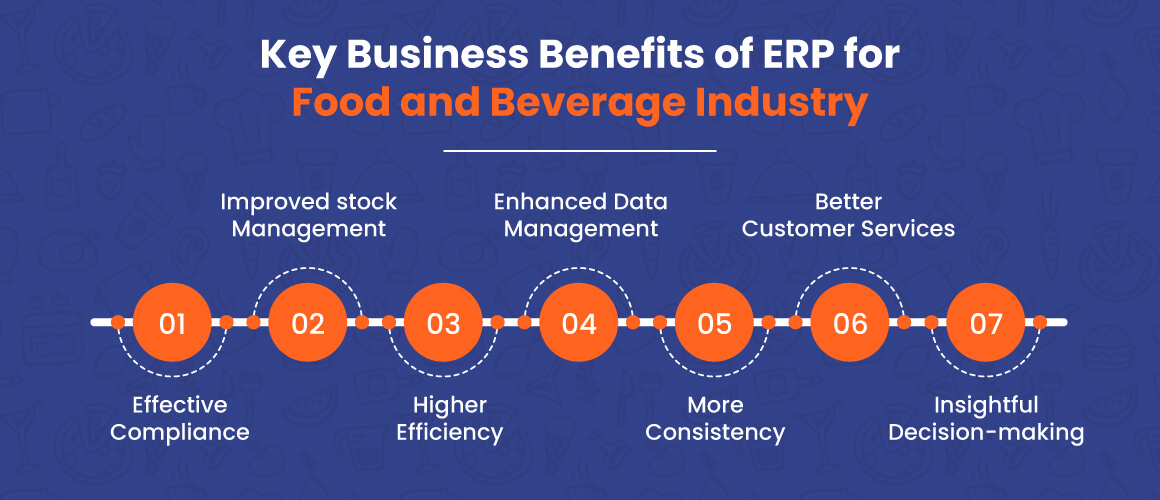
A food and beverage ERP with the desired features can offer the following benefits to the food manufacturing company-
Effective Compliance
An ERP solution can simplify complexities and improve compliance with evolving food regulations. It also ensures transparency and stock management throughout the supply chain.
Improved stock Management
It improves the management of perishable items and makes tracking of such items possible. It also facilitates management of sell-by-date items by offering batch tracking functionality.
Higher Efficiency
ERP enhances flexibility and efficiency by offering multi-device access. It also supports a digital-centric marketplace to improve customer experience and collaboration across departments.
Enhanced Data Management
Centralized database in the ERP solution enables users to access data across all departments. It also ensures that the F&B industry does not miss any opportunity due to inefficient data.
More Consistency
An ERP has inbuilt tools for tracking and monitoring quality at every stage of a product’s lifecycle. It also helps maintain consistent quality throughout the manufacturing process.
Better Customer Services
Users can offer better customer services by integrating the ERP for F&B industry with CRM systems. An ERP can unify and manage customer data and improve response time for queries.
Insightful Decision-making
ERP solutions can give real-time data for effective decision-making. Food manufacturers can reduce workflow bottlenecks and make meaningful decisions for the desired outcome.
Overall, ERP software for the food and beverage industry offers many benefits that can increase their sustainability and productivity.
How Silver Touch Helps You with Food and Beverage ERP Software
Our comprehensive range of ERP solutions and implementation services can help food and beverage businesses achieve their full potential. We are a trusted ERP implementation partner for various companies across different industry sectors for the following reasons-
- Deep Domain Expertise
- Highly Experienced Professionals
- Strong Global Presence
- Excellent Technical Assistance
- End-to-end Services
- Cloud Integration and Services
We understand the unique challenges and opportunities of the food and beverage industry and tailor ERP solutions to your specific needs. Our scalable solutions can provide secure and affordable access to your system from anywhere, anytime. It eliminates the requirement for installing costly hardware and IT infrastructure.
Let’s connect to discuss more!
Concluding Remarks
In a world of ever-changing consumer demands and increasing challenges, the food and beverage industry faces unique challenges. Fortunately, ERP for food and beverage industry can help you address these challenges through its unique features.
Your food and beverage businesses can gain many benefits including increased productivity, enhanced operational efficiency, and improved quality control using the ERP solution. However, it is imperative to get the right implementation partner and advanced food and beverage ERP solution to drive success for your business.
FAQs about ERP for Food and Beverage Industry:
The industry faces challenges like data management, traceability issues, ensuring food safety and compliance, quality control, and efficient inventory management.
ERP unifies information, simplifies traceability, ensures food safety, streamlines quality control, automates tasks, optimizes inventory, and provides valuable insights for better decision-making.
Common features include inventory management, recipe and formula management, reporting and analytics, lot and batch tracking, and integration with CRM systems.
ERP can lead to improved compliance, better stock management, higher efficiency, enhanced data management, more consistent quality, and improved customer service.
Cloud-based, on-premises, and hybrid ERP solutions are available, with cloud-based and hybrid options offering cost-effectiveness and ease of maintenance.
Consider your specific needs, budget, and desired features. Look for a provider with deep domain expertise in the food and beverage industry and scalable solutions that meet your requirements.


